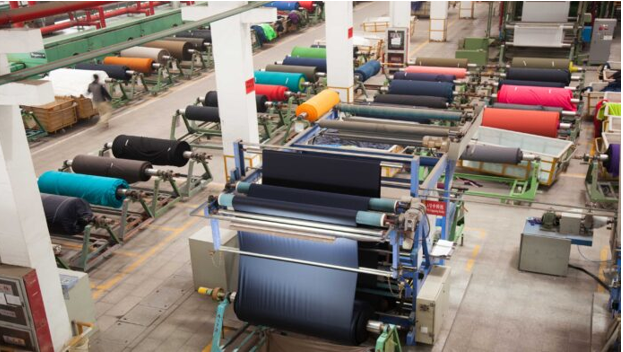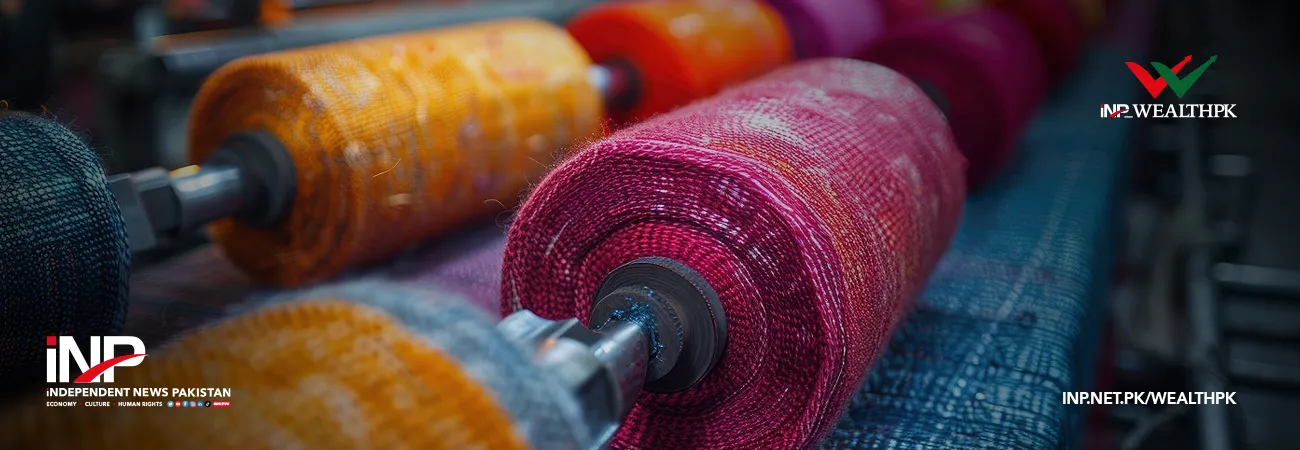INP-WealthPk
Moaaz Manzoor
The Pakistan Textile Council (PTC) has sounded alarm over declining exports and industrial closures, calling for urgent reforms to safeguard the country’s economic outlook.

The PTC has warned that mounting costs and policy uncertainty are eroding the competitiveness of the country’s largest export sector. “This is a wake-up call,” said PTC Chairman Fawad Anwar. “Pakistan’s cost of doing business is becoming unbearable. Without urgent reforms, we risk further closures of export-oriented units and reduced foreign investment.”
The warning comes amid a series of high-profile developments. Gul Ahmed Textile Mills Limited recently announced the closure of its export apparel segment, citing unsustainable losses due to rising input costs, shifting taxation, and intense regional competition. The highly labour-intensive apparel segment has employed thousands, and the industry views its closure as a troubling sign of what lies ahead.
The PTC also pointed to the exit or scaling-down of several multinationals, including Procter & Gamble, Microsoft, Shell, Total Energies, Pfizer, Sanofi, and Careem. While some of these were global restructuring moves, the common factor across industries has been uncompetitive energy prices, high taxation, and regulatory bottlenecks.
To address these challenges, the PTC has demanded the alignment of wage and labour policies with regional peers, regionally competitive and predictable energy tariffs, automation of 72-hour tax refunds, expansion of export financing facilities, and policy stability with transparent monitoring. “These are not demands for subsidies but calls for a level playing field,” Fawad emphasised.
The textile council stressed that supportive policies, such as those in Bangladesh and Vietnam, have helped peers attract investment and expand exports. He cautioned that the challenges were evident and that without timely adjustments in energy, taxation, and policy consistency, Pakistan could face further strain in both textile and non-textile sectors.
According to Pakistan Bureau of Statistics, merchandise exports fell by 3.83% in the first quarter (July-September) of FY26, dropping to $7.60 billion from $7.91 billion in the same period last year. Imports in the quarter surged by 13.49% to $16.97 billion from $14.95 billion previously, pushing the trade deficit up nearly 33% to $9.37 billion compared with $7.05 billion in the corresponding quarter of last year.
September alone saw exports decline by 11.71% year-on-year to $2.50 billion against $2.84 billion in the same month of 2024. Imports in September stood at $5.84 billion, up 14% from $5.13 billion last year. Consequently, the monthly trade deficit widened 45.83% year-on-year to $3.34 billion from $2.29 billion. On a month-to-month basis, however, exports showed a modest 3.64% rise from August’s $2.42 billion, while imports grew faster by 10.53%.
Credit: INP-WealthPk









